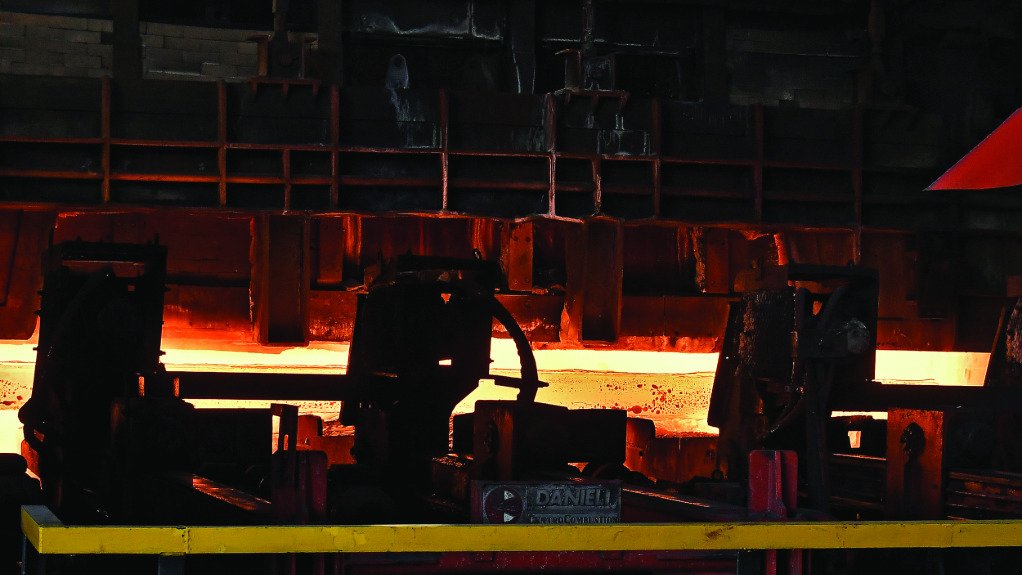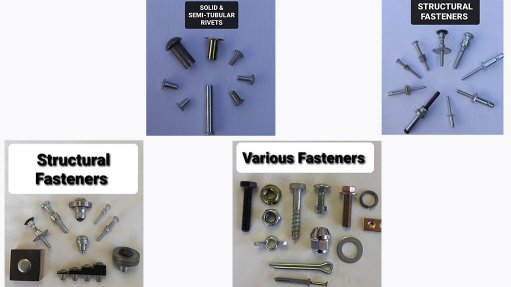AMSA postpones longs wind down by month amid intense rescue talks with government
Steel producer ArcelorMittal South Africa (AMSA) has postponed the wind down of its longs business by a month to allow talks with government on possible ways to prevent the closure to progress, as well as to ensure ongoing supply to downstream customers that have no immediate alternatives.
The delay has been facilitated by a R380-million loan from the State-owned Industrial Development Corporation (IDC), which is a shareholder in the group, and which has also extended the deadline for the repayment of an older R950-million loan from June 2025 to September 2026.
The new loan was approved after AMSA indicated that it was unwilling to continue to absorb losses in the absence of a long-term solution to the structural problems afflicting its longs business.
On January 6, the JSE-listed company announced that it would wind down its longs business by the end of the same month after protracted negotiations with government failed to yield results that were considered satisfactory by AMSA.
Talks under the aegis of an inter-Ministerial task team had since intensified, alongside discussions with the IDC on a possible funding structure to cushion AMSA from the financial drain associated with ongoing losses from the longs unit.
In 2025, the longs business was responsible for R1.1-billion of the R1.8-billion loss on a earnings before interest, taxes and depreciation basis, with the balance of the losses attributed to the flats unit, which experienced operational problems relating to chilled conditions in some of its blast furnaces.
CEO Kobus Verster denied knowledge of a possible R1-billion “bailout” that had been reported in the media, but confirmed that discussions on possible funding structures were under way with the IDC.
“The longs business will only continue with financial support as the company does not have the appetite to bear any financial risk associated with the continued operations of that business,” he said.
Verster continued to stress that a multi-layered solution was required to prevent the closure, which had placed 3 500 direct and indirect jobs at risk and which also threatened the socioeconomic fabric of the northern KwaZulu-Natal town of Newcastle.
The group has persistently highlighted high and rising electricity and rail tariffs as an impediment to continued operations at the Newcastle Works, which is heavily reliant on efficient logistics given its geographical distance from iron-ore sources and from markets.
When the mill was initially developed it was located close to a coking coal resource, and there had been an assumption that the logistics costs associated with iron-ore supply would be offset by the low-cost of that iron-ore being supplied, as well as the mill’s proximity to export markets through the Port of Richards Bay.
Instead, AMSA now imports coking coal, its iron-ore costs have increased after it lost its Sishen rights, Transnet Freight Rail’s costs and performance have deteriorated and Newcastle’s export prospects never materialised, with South Africa experiencing intense import competition currently.
The group, which reported a R5.8-billion loss last year, told shareholders that steel imports into South Africa reached their highest recorded levels in 2025, accounting for 33.6% of the country's apparent steel consumption. This, at a time when domestic demand remained extremely weak.
In addition, the blast-furnace operation at Newcastle was facing what Verster described as unfair competition from several domestic electric-arc-furnace operations, which were securing discounted scrap material on the back of a preferential pricing system for scrap and an export tax.
He said that, while he did not expect government to halt the scrap benefit entirely, it was nevertheless within its power to act swiftly to reduce the size of the structural advantage of the mini mills over Newcastle.
“This is not a world of absolutes, so maybe it's not a 30% [scrap] discount, maybe it's a 10% discount,” he said.
He also reported that the group could assess the future of its longs production on an asset-by-asset basis should Newcastle close, indicating that there could, for instance, be an opportunity to reopen the ArcelorMittal Rail and Structures facility using alternative inputs.
Article Enquiry
Email Article
Save Article
Feedback
To advertise email advertising@creamermedia.co.za or click here
Press Office
Announcements
What's On
Subscribe to improve your user experience...
Option 1 (equivalent of R125 a month):
Receive a weekly copy of Creamer Media's Engineering News & Mining Weekly magazine
(print copy for those in South Africa and e-magazine for those outside of South Africa)
Receive daily email newsletters
Access to full search results
Access archive of magazine back copies
Access to Projects in Progress
Access to ONE Research Report of your choice in PDF format
Option 2 (equivalent of R375 a month):
All benefits from Option 1
PLUS
Access to Creamer Media's Research Channel Africa for ALL Research Reports, in PDF format, on various industrial and mining sectors
including Electricity; Water; Energy Transition; Hydrogen; Roads, Rail and Ports; Coal; Gold; Platinum; Battery Metals; etc.
Already a subscriber?
Forgotten your password?
Receive weekly copy of Creamer Media's Engineering News & Mining Weekly magazine (print copy for those in South Africa and e-magazine for those outside of South Africa)
➕
Recieve daily email newsletters
➕
Access to full search results
➕
Access archive of magazine back copies
➕
Access to Projects in Progress
➕
Access to ONE Research Report of your choice in PDF format
RESEARCH CHANNEL AFRICA
R4500 (equivalent of R375 a month)
SUBSCRIBEAll benefits from Option 1
➕
Access to Creamer Media's Research Channel Africa for ALL Research Reports on various industrial and mining sectors, in PDF format, including on:
Electricity
➕
Water
➕
Energy Transition
➕
Hydrogen
➕
Roads, Rail and Ports
➕
Coal
➕
Gold
➕
Platinum
➕
Battery Metals
➕
etc.
Receive all benefits from Option 1 or Option 2 delivered to numerous people at your company
➕
Multiple User names and Passwords for simultaneous log-ins
➕
Intranet integration access to all in your organisation



















